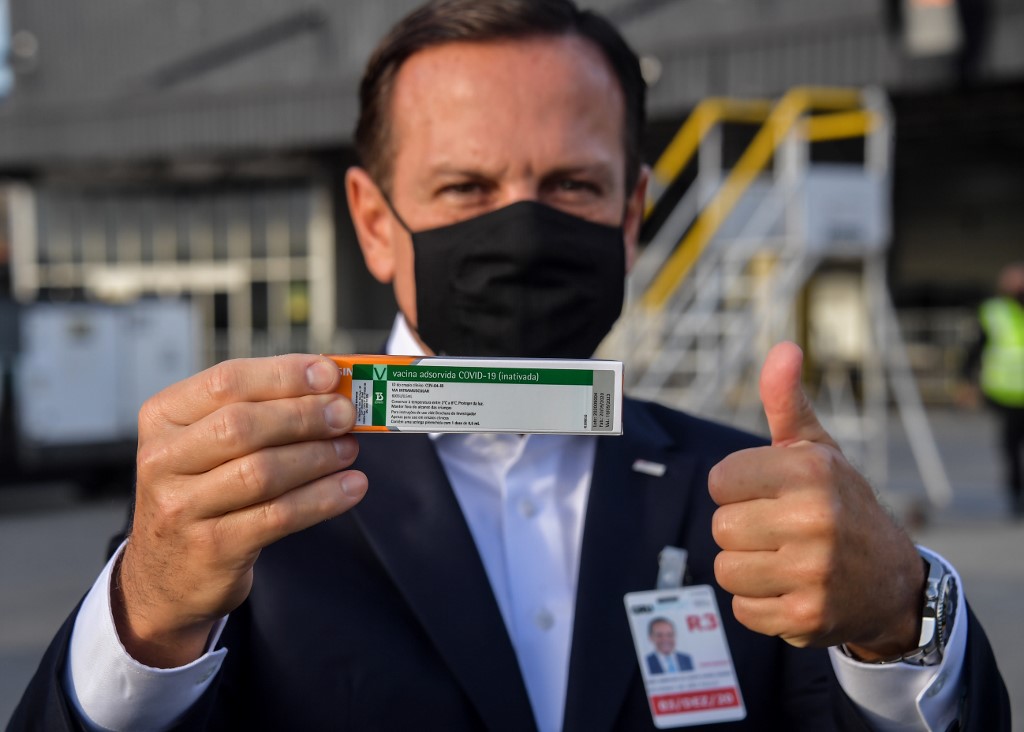
SAO PAULO, Brazil (AFP) — Sao Paulo state, Latin America’s coronavirus epicenter, will launch a Covid-19 vaccination campaign in January, the governor said Monday, though a political battle with Brazilian President Jair Bolsonaro could derail those plans.
Governor Joao Doria said large-scale immunization using Chinese-developed vaccine CoronaVac would begin with health care workers, the elderly and other vulnerable groups on January 25.
“The target public for this initial phase was chosen based on the incidence of coronavirus fatalities in the state,” Doria told a news conference.
However, the state’s proposed five-phase timeline depends on Brazil’s federal regulatory agency, Anvisa, approving the vaccine.
CoronaVac has been caught up in a political battle between Bolsonaro and Doria, a top contender to challenge the far-right president in Brazil’s 2022 elections.
Bolsonaro has referred to CoronaVac as “Joao Doria’s Chinese vaccine,” and pushed for Brazil to instead use the vaccine developed by Oxford University and British-Swedish pharmaceutical firm AstraZeneca.
Both vaccines are undergoing final-stage clinical testing in Brazil.
The South American country has the second-highest death toll in the pandemic after the United States, with nearly 177,000 people killed.
Nearly a quarter of those deaths have been in Sao Paulo, Brazil’s industrial hub and home to 46.2 million people.
CoronaVac was developed by Chinese pharmaceutical firm Sinovac.
The company has a deal with Sao Paulo’s Butantan Institute, Brazil’s leading vaccine producer, that allows the institute to manufacture CoronaVac locally.
Under the deal, Sao Paulo secured 46 million doses of CoronaVac in all, enough to immunize 23 million people.
The federal government, which has secured 100 million doses of the Oxford vaccine, plans to start its own vaccination campaign in March.
According to Anvisa, no vaccine manufacturers have yet applied for regulatory approval in Brazil.
The agency briefly halted clinical trials of CoronaVac last month. Opponents cried foul, accusing Bolsonaro’s government of political interference in the regulatory process.
© Agence France-Presse







